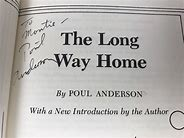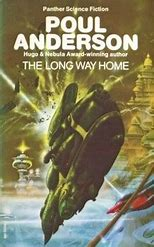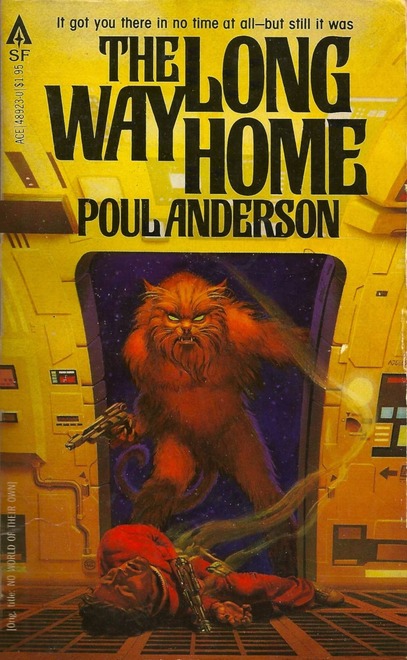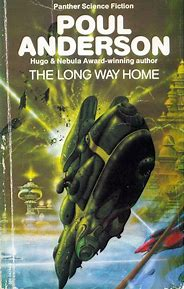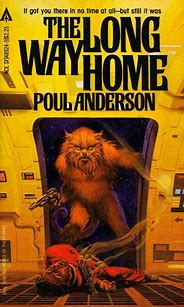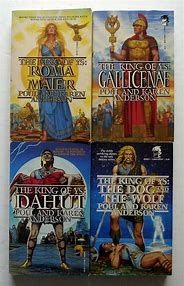The Long Way Home.
Ed Langley, like HG Wells' Time Traveller, has passed into the future and must learn what has become of mankind. However, the Time Traveller contends only with the class division - and species division - between Morlocks and Eloi whereas Langley faces a galactic diaspora.
Interstellar emigration began slowly in the twenty-first century. During later periods of trouble, successive waves of malcontents and refugees went far from Sol to avoid recapture. Lost colonies are presumably scattered throughout the galaxy.
The Technate resumed colonization as a safety valve and tried to retain control of nearby colonies although this became impossible so that there are now about a dozen independent states still in contact with Sol. Sol and Centauri contend for the mineral resources of Sirius where the government is weak. Valti of the Commercial Society is from Ammon in the Tau Ceti system. There may be more info.
Addenda after an afternoon out:
The Tau Ceti system also includes the inhabited planets, Osiris and Horus.
Langley's companion, Marin, observes that, among the thousands of lost colonies:
"'Surely one of them, somewhere, has become something different.'" (CHAPTER ELEVEN, p. 103)
She means something better than any of the known civilizations. Surely... This is one of many sf scenarios that could be extended indefinitely with additional speculations about utopias, dystopias etc.
Meanwhile, on another blog...






